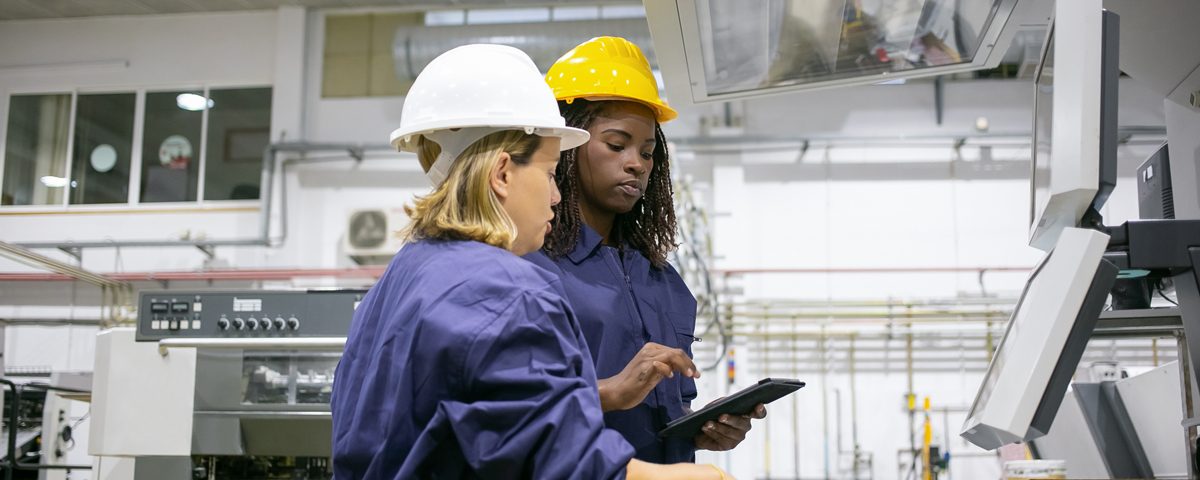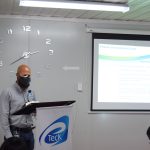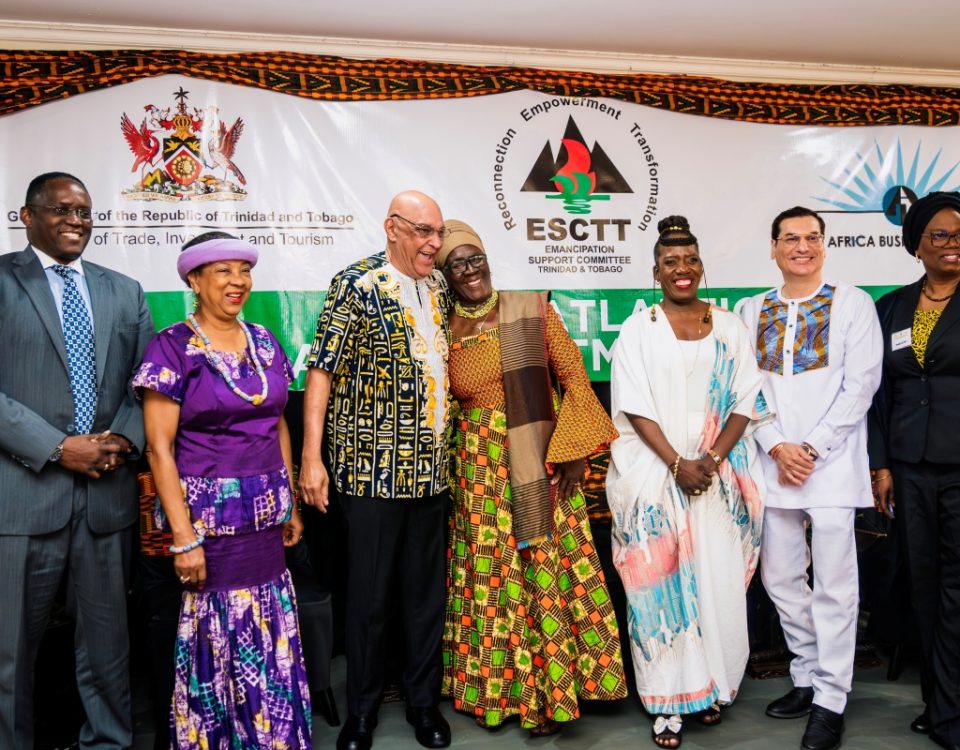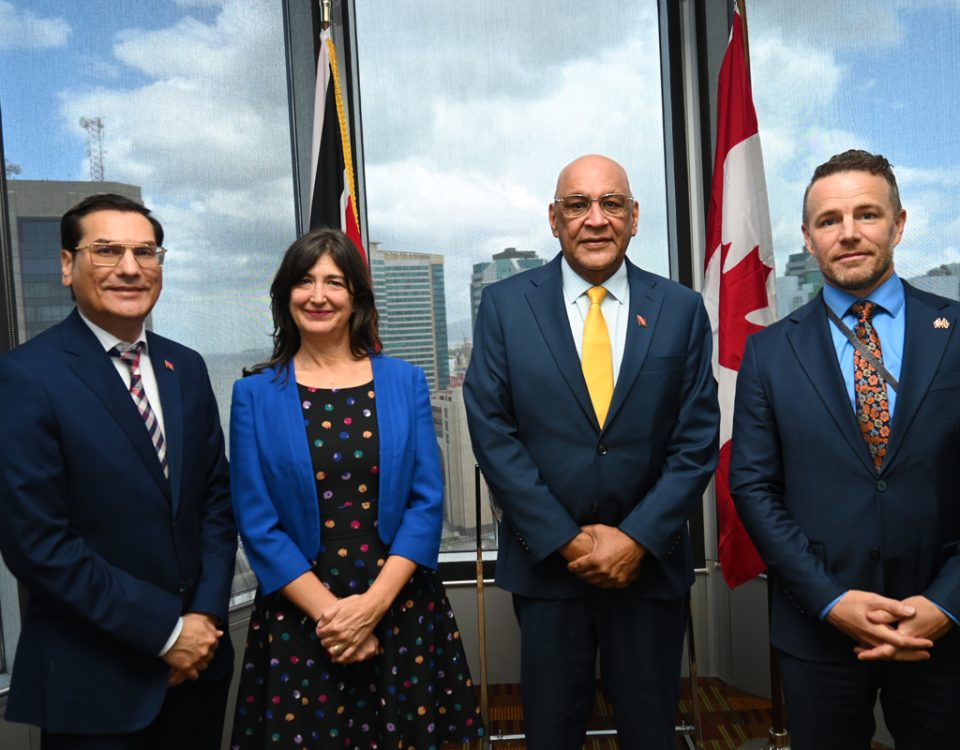Trade and Industry Minister, Senator the Honourable Paula Gopee-Scoon earlier today announced that Cabinet had approved the implementation of an Apprenticeship Programme for the Non-Energy Manufacturing Sector. This Program will be implemented by the Ministry of Trade and Industry in conjunction with the Ministry of Education (specifically the MIC Institute of Technology (MIC-IT). Other partners that will be involved in the implementation of the programme include the National Training Agency (NTA) and the Trinidad and Tobago Manufacturers’ Association (TTMA).
Background
The Non-energy Manufacturing sector in Trinidad and Tobago remains an important and dynamic sector in the economy. It is a catalyst for achieving economic transformation and diversification, and most importantly a reduction in the country’s food import bill, exports and the generation of foreign exchange and provision of sustainable employment. It is the third largest contributor to the country’s Gross Domestic Product (GDP) after the Services and the Oil and Gas Sectors contributing almost 20% or TT $30 billion to the country’s GDP in 2020 (measured on a year-on-year basis) and employs approximately 52,000 persons.
In order to grow and develop the Non-energy Manufacturing sector there is a requirement to, inter alia, build human resource capacity within the Sector. This need was identified in the Strategic Framework for the Expansion of the Manufacturing sector and was also highlighted in the recommendations outlined in the Phase 2 Report of the Roadmap for Trinidad and Tobago: Transforming to a New Economy and a New Society.
Timelines for the Development of the Programme
Trinidad and Tobago has a long and rich history of apprenticeship training which has produced skilled craftsmen and technicians that have played a pivotal role in our nation’s industrial growth, development and sustainability. The benefits of apprenticeship programmes have been evident in terms of their contribution to the Energy Sector.
In November 2020 the National Training Agency of Trinidad and Tobago established a Manufacturing Sector Advisory Committee (SAC) based on the recommendations outlined in the Roadmap for Trinidad and Tobago.
In February 2021 a Working Sub-committee from the larger SAC was formed comprising key stakeholders from the private and public sectors including the Ministry of Trade and Industry (MTI), the Trinidad and Tobago Manufacturers’ Association (TTMA), the National Training Agency (NTA) and the MIC Institute of Technology (MIC-IT).
The Sub-committee reviewed most of the Technical and Vocational Education Training (TVET) Programmes currently available in the country and recognized that the National Skills Development Programme (NSDP-Journeyman Programme), currently offered by the MIC Institute of Technology (MIC-IT), was closely aligned with the some of the requirements of an Apprenticeship Program for the Non-Energy Manufacturing Sector.
MIC-IT was further required to develop a hybrid NSDP targeted to the Manufacturing sector but based on the foundation of the already established NSDP-Journeyman Programme. The output of the various stakeholders involved in this exercise was the development of an Apprenticeship Programme for the Non-Energy Manufacturing Sector
The NDSP Programme is a Level III Caribbean Vocational Qualification (CVQ) Programme which is accredited by both the Accreditation Council of Trinidad and Tobago (ACTT) and by the German Chamber of Crafts and Trades (GCCT) in Germany. It also conforms to the German Dual Model of Apprenticeship Training.
The development of this Programme was also informed by the results of two (2) Labour Market Surveys namely:
- Labour Market Demands Survey (2019)– the objectives of this Survey were to (i) determine the demand and supply of labour (skilled and unskilled) within specified Manufacturing sub-sectors in both Trinidad and Tobago; (ii) provide the numbers and nature of vacancies currently existing in each sub-sector; (iii) determine the scope of training provided in the various sub-sectors and (iv)identify the immediate and specific skills-sets required by each sub-sector.The Survey also revealed that existing training programmes were only capable of filling vacancies for 50% of the human resource development needs of companies within the Manufacturing Sector. Companies in the sector also indicated training programmes were inadequate in terms of scope of curriculum content and practical exposure.
- Labour Market Skills Gap and Fore-sighting Survey (2021)- based on the findings of this Survey, a series of skills gaps were discovered in the areas of: Electrical Engineers, Machine Operators, Maintenance Technicians, Line Assemblers, Line Operators, Production Managers, Production Line Workers, Welders and Fabricators, Electrical and Mechanical Technicians, Electronics and Lighting Technicians, Processors, Production Workers, Manufacturing Workers and Warehousing Workers.
Delivery of the Programme
This Apprenticeship Programme will be delivered practically with a 1:3 ratio of theory to practical and employ a process-based mode: that is, learning content will be transferred practically through project work.
The Programme will be administered in two (2) phases spanning a three (3) year period.
- Phase 1 (Year 1): participants will be trained over four (4) main operational areas including: (a) Mechanical Engineering Technology; (b) Electrical Electronics Technology; (c) Industrial Maintenance Technology; and (d) Mechatronics. Training will be done in-house at one of MIC-IT’s Training Centres, on a full-time basis.
- Phase 2 (Years 2&3): Programme trainees will be required to choose one (1) of the four (4) disciplines for specialization. Trainees will be placed into on-the-job training at an industry partner site and be exposed to the practical, real-world application of the knowledge and practical skills they gained during the first year of training. Trainees will spend four (4) days per week in the industry and one (1) day per week at the MIC-IT training centre where they will receive continual in-house training in their specialized area to complement their on-the-job training.
Relevance to the Fourth Industrial Revolution and Industry 4.0
This Programme will help prepare the domestic Manufacturing sector, and Trinidad and Tobago, in transitioning to the Fourth Industrial Revolution especially as we navigate from the Covid-19 Pandemic to recovery and resilience. Transitioning to Industry 4.0 requires a transformation our approach to doing business and the adoption and use of more sophisticated technology, machinery and equipment. A key element of this process involves the building of capacity in human resources to enhance their capabilities and competencies, thereby improving Trinidad and Tobago’s productivity and overall competitiveness. This Programme is geared towards facilitating this transformation by producing skilled labour that can perform at higher, and more technical levels, within the Sector via a robust and intensive training predicated on both theory and practice.
Entry Requirements
To matriculate into the Programme applicants will be required to have a foundational knowledge of Mathematics, be fluent in English and have some understanding of scientific principles. The Programme therefore requires applicants to have Caribbean Secondary Education Certificate (CSEC) passes in Mathematics, English and one (1) Science/Engineering subject. Accordingly, the following entry requirements are necessary for the Programme:
- A National Craftsman Certificate or equivalent- which is a Pre-Technician Certificate in the relevant area of technical specialization already offered by MIC-IT, UTT and the NESC.
- At least three (3) CSEC or GCE passes or equivalent at grade A, B, C, or 1,2,3 including: English, Mathematics, Technical Drawing, Mechanical Engineering Technology, Building Construction Technology, Electrical/Electronics Technology, any of the Sciences; and
- Between the ages of 17-25 years.
Cost of the Programme
The overall cost of implementing the three cohorts of the Programme over the five-year period, Fiscal 2022-2027 is approximately TT$32 Million. The budget covers the following items of expenditure:
- Tuition;
- Stipend Allowance;
- Marketing & Promotion;
- Trainee PPE/ Materials and Supplies;
- Teaching Materials and Supplies;
- Trainees Medical Insurance; and
- Student Support Services.
As part of the Programme, trainees will be paid a stipend allowance of $3,000 per trainee per month. This is necessary to encourage trainees to enter the Programme from the Manufacturing sector bearing in mind that the Programme is full-time and there are no part-time options.
During Year 1 of the Programme the Government will accommodate 100% of the stipend allowance. During years two (2) and three (3) of the Programme, the payment of the stipend will be shared between the Government and the industrial partner in the ratio of 75%:25% and 50%:50% respectively.
Support by the Private Sector
This National Apprenticeship Programme has been supported and endorsed by the private sector, namely the Trinidad and Tobago Manufacturers’ Association (TTMA). The role of the TTMA will be instrumental in recruiting trainees from within the Sector; coordination of industrial partners; and for the placement of graduates into jobs within the Sector.
Programme Launch
The launch of the Programme is scheduled for the third week of April 2022 with the first cohort of 100 trainees immediately matriculating into the Programme. At the end of the Programme, approximately 300 persons will be fully trained to fill existing vacancies within the Manufacturing sector.
The Apprenticeship Programme, announced today, is yet another initiative aimed at strengthening the ecosystem for the further growth and development of the Manufacturing Sector.













